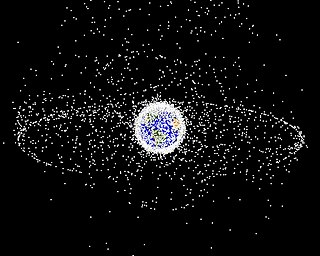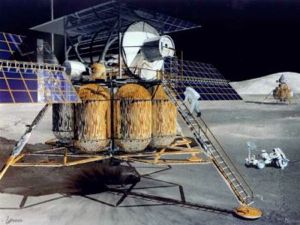This biographical article is written like a résumé .(May 2024) |
Deana Weibel is an anthropologist and author, living in Michigan, USA. [1] [2]
This biographical article is written like a résumé .(May 2024) |
Deana Weibel is an anthropologist and author, living in Michigan, USA. [1] [2]
In 2001, she earned her Ph.D. in anthropology from the University of California, San Diego, [3] where she began her exploration of the relationship between culture, religion, and society. [4] As a professor of anthropology, [5] she holds a joint appointment in the Anthropology Department and the School of Integrative Studies' Religious Studies program at Grand Valley State University. [6] [7] [8]
Weibel has investigated the cultural importance of pilgrimage activities in a variety of religious traditions, including Christianity, Islam, and Hinduism, through in-depth fieldwork and ethnographic investigations. [9] [10]
She is the co-founder and co-organizer of the Roger That! Event in Grand Rapids, Michigan. [11]
Weibel has been a Fellow National in the Explorers Club and chair of the Chicago/Great Lakes chapter. [12]
Weibel coined the term 'ultraview effect,' inspired by Frank White's 'overview effect,' to describe the transformative impact of viewing stars from space experienced by some astronauts. [13]
Anthropology of religion is the study of religion in relation to other social institutions, and the comparison of religious beliefs and practices across cultures. The anthropology of religion, as a field, overlaps with but is distinct from the field of Religious Studies. The history of anthropology of religion is a history of striving to understand how other people view and navigate the world. This history involves deciding what religion is, what it does, and how it functions. Today, one of the main concerns of anthropologists of religion is defining religion, which is a theoretical undertaking in and of itself. Scholars such as Edward Tylor, Emile Durkheim, E.E. Evans Pritchard, Mary Douglas, Victor Turner, Clifford Geertz, and Talal Asad have all grappled with defining and characterizing religion anthropologically.

Grand Valley State University is a public university in Allendale, Michigan, United States. It was established in 1960 as Grand Valley State College. Its main campus is situated on 1,322 acres (5.35 km2) approximately 12 miles (19 km) west of Grand Rapids. The university also features campuses in Grand Rapids and Holland and regional centers in Battle Creek, Detroit, Muskegon, and Traverse City.
The Space Review is a free online publication, published weekly with in-depth articles, essays, commentary and reviews on space exploration and development. It was founded in February 2003 by Jeff Foust, the current editor, publisher and regular writer.
Pascal Robert Boyer is a Franco-American cognitive anthropologist and evolutionary psychologist, mostly known for his work in the cognitive science of religion. He studied at université Paris-Nanterre and Cambridge, and taught at the University of Cambridge for eight years, before taking up the position of Henry Luce Professor of Individual and Collective Memory at Washington University in St. Louis, where he teaches classes on evolutionary psychology and anthropology. He was a Guggenheim Fellow and a visiting professor at the University of California, Santa Barbara and the University of Lyon, France. He studied philosophy and anthropology at University of Paris and Cambridge, with Jack Goody, working on memory constraints on the transmission of oral literature. Boyer is a Member of the American Academy of Arts and Sciences.
Heritage tourism is a branch of tourism centered around the exploration and appreciation of a region's cultural, historical and environmental heritage. This form of tourism includes both tangible elements, such as historically significant sites, monuments, and artifacts, as well as intangible aspects, such as traditions, customs, and practices.

Rocamadour is a commune in the Lot department in southwestern France. It lies in the former province of Quercy. It is a member of Les Plus Beaux Villages de France Association.

The Moon Society is a space advocacy organization, founded in 2000, and dedicated to promoting large-scale human exploration, research, and settlement of the Moon.

Formed in 1954, the American Astronautical Society (AAS) is an independent scientific and technical group in the United States dedicated to the advancement of space science and space exploration. AAS supports NASA's Vision for Space Exploration and is a member of the Coalition for Space Exploration and the Space Exploration Alliance. The AAS also focuses on strengthening the global space program through cooperation with international space organizations. The society has a long history of supporting space exploration through scholarships.

Germaine Dieterlen was a French anthropologist. She was a student of Marcel Mauss, worked with noted French anthropologists Marcel Griaule (1898-1956) and Jean Rouch, wrote on a large range of ethnographic topics and made pioneering contributions to the study of myths, initiations, techniques, graphic systems, objects, classifications, ritual and social structure.
Space-based economy is economic activity in outer space, including asteroid mining, space manufacturing, space trade, space burial, space advertising and construction performed in space such as the building of space stations.

The overview effect is a cognitive shift reported by some astronauts while viewing the Earth from space. Researchers have characterized the effect as "a state of awe with self-transcendent qualities, precipitated by a particularly striking visual stimulus". The most prominent common aspects of personally experiencing the Earth from space are appreciation and perception of beauty, unexpected and even overwhelming emotion, and an increased sense of connection to other people and the Earth as a whole. The effect can cause changes in the observer's self concept and value system, and can be transformative.

Thomas Gautier Pesquet is a French aerospace engineer, pilot, European Space Agency astronaut, actor, musician, and writer. Pesquet was selected by ESA as a candidate in May 2009, and he successfully completed his basic training in November 2010. From November 2016 to June 2017, Pesquet was part of Expedition 50 and Expedition 51 as a flight engineer. Pesquet returned to space in April 2021 on board the SpaceX Crew Dragon for a second six-month stay on the ISS.
Astronauts and other spaceflight participants have observed their religions while in space; sometimes publicly, sometimes privately. Religious adherence in outer space poses unique challenges and opportunities for practitioners. Space travelers have reported profound changes in the way they view their faith related to the overview effect, while some secular groups have criticized the use of government spacecraft for religious activities by astronauts.

Human presence in space is the direct and mediated presence or telepresence of humans in outer space and in a broader sense also on any extraterrestrial astronomical body. Human presence in space, particularly through mediation, can take many physical forms from space debris, uncrewed spacecraft, artificial satellites, space observatories, crewed spacecraft, art in space, to human outposts in outer space such as space stations.
The archaeology of religion and ritual is a growing field of study within archaeology that applies ideas from religious studies, theory and methods, anthropological theory, and archaeological and historical methods and theories to the study of religion and ritual in past human societies from a material perspective.
Religion and business have throughout history interacted in ways that relate to and affected one another, as well as influenced sociocultural evolution, political geographies, and labour laws. As businesses expand globally they seek new markets which leads to expanding their corporation's norms and rules to encompass the new locations norms which most often involve religious rules and terms.

C. Michael Smith is a clinical psychologist and scholar whose medical anthropological and theoretical work has focused on the study of healing systems across cultures. He holds that study of indigenous healing systems can help clarify the strengths and weaknesses of our own modern health care systems.

A change of command is a military tradition that represents a formal transfer of authority and responsibility for a unit from one commanding or flag officer to another. The passing of colors, standards, or ensigns from an outgoing commander to an incoming one ensures that the unit and its soldiers is never without official leadership, a continuation of trust, and also signifies an allegiance of soldiers to their unit's commander.
Stephen D. Glazier is an American anthropologist who specializes in comparative religion. Currently, he is a Senior Research Anthropologist at the Human Relations Area Files at Yale University. Since 1976, Glazier has conducted ethnographic fieldwork on the Caribbean island of Trinidad focusing on the Spiritual Baptists, Orisa, and Rastafari. He also publishes on Caribbean archaeology and prehistory. Glazier cataloged Irving Rouse's St. Joseph (Trinidad) and Mayo (Trinidad) collections for the Peabody Museum of Natural History. In 2017, Glazier retired as professor of Anthropology and Graduate Faculty Fellow at the University of Nebraska, where he taught classes in general (four-field) anthropology, race and minority relations, and a graduate seminar on the anthropology of belief systems.

First Lunar Outpost was a proposal for a crewed lunar mission that would have launched sometime in the 2010s. It was part of George H. W. Bush's Space Exploration Initiative. The main purpose of the proposal was to offer a much less expensive alternative to NASA's 90-day study from 1989 by a factor of US$30 billion. Although it did not gather much mainstream attention, NASA dedicated much time to assembling a detailed and thorough proposal. However, the entire Space Exploration Initiative was cancelled soon after the proposal's completion, and NASA closed the Office of Space Exploration in March 1993.